This article was co-authored by Rachel Eddins, M.Ed., LPC-S. Rachel Eddins is a Licensed Professional Counselor and the Executive Director of Eddins Counseling Group. With more than 20 years of experience, she specializes in working with clients with eating disorders, anxiety and depression, relationship issues, and career obstacles. Rachel earned a BA in Psychology from The University of Texas at Austin and an MEd in Counseling from The University of Houston. She received a Group Psychotherapist Certification from the American Group Psychotherapy Association and an Intuitive Eating Counselor Certification through Intuitive Eating Pros. She is also recognized as a Master Career Counselor through the National Career Development Association.
There are 25 references cited in this article, which can be found at the bottom of the page.
If you grew up with a mother who put her wants above your needs, you know what a painful experience that is for a kid. Maybe you’ve noticed that the toxic dynamic with your mom has impacted your life in significant ways. But there’s hope: as you learn more about how narcissistic traits twist mother-child relationships, you’ll be better equipped to cope with the fallout. This article will help you spot common signs of a narcissistic mom and offer suggestions for healing–because you deserve better.
Things You Should Know
- Narcissistic moms often share common traits such as the need for attention, a lack of empathy, and the desire to exploit and manipulate others.
- If your mother displayed narcissistic behaviors, you may struggle with low self-esteem and/or mental health issues like anxiety or depression.
- Dealing with your mom today requires setting firm boundaries. Minimizing or cutting off contact may be necessary for your own well-being.
- Some strategies for healing include journaling, nurturing yourself as a loving parent would, and participating in trauma therapy.
Steps
Signs of a Narcissistic Mother
-
1Your mother may not have demonstrated concern for you. Emotional neglect is common when a child has a narcissistic parent. You may have felt invisible despite desperate attempts to earn her affection.[4] You mother might not have responded to your feelings in a validating way.
- For example, instead of comforting you when you had a stomach ache, a narcissistic mother might say something like, “Quit crying, you don’t see me crying every time my stomach hurts.”
-
2She may have been moody and unpredictable. Your mother might have swung from being sweet and kind to you in front of others to raging at you as soon as you got in the car. It’s typical for someone with narcissistic traits to brag about their kid in public while treating them badly behind closed doors.[5]
- Image is usually very important to a mother with narcissistic tendencies. She likes to present a facade of perfection to the world.[6]
-
3She may have been competitive with you. Narcissists love to win, often at any cost. If your mom saw you succeeding, she might have acted cruelly because she felt jealous and threatened. Chances are, she didn’t want anyone to outshine her, not even her own kid.[7]
- Say you were thrilled about winning second place in a competition. Your mom might have shrugged and said something like, “Big deal. Being the second-place winner just makes you the first-place loser.”
-
4She probably acted as though the world revolved around her. She likely enjoyed being the center of attention and had a knack for turning conversations back to her favorite topic: herself. She may have truly believed that her opinion was the only one that mattered.[8]
- For instance, your mother may have ended arguments by saying, “I’m the grown-up and I know best.” Your viewpoint was probably ignored and debates were quickly shut down.[9]
-
5She may have used you as a “tool.” Instead of seeing you as an individual, she probably used you to fulfill her own goals and desires.[10] She may not have seen anything wrong with taking advantage of you: maybe she “borrowed” money from your piggy bank or forced you to clean up after her.
- It’s common for a narcissistic parent to put their own needs above everyone else’s. They tend to think their wants are more important because they believe they’re more important.[11]
- Because a narcissistic mom sees her child as an extension of herself, she may become enraged by her kid’s mistakes.[12] For example, she might take it personally when her child forgets to hand in a school project: “Do you have any idea how bad this makes me look?!”
-
6She was probably sensitive to criticism. It's likely she viewed any sort of feedback as an insult or a threat.[13] As a child, you may have felt like you were always “walking on eggshells.” You might have been afraid to speak up because you didn’t know what might trigger your mom’s anger.
- For example, she might have complained about how much work it was to cook dinner, only to explode if you suggested a simpler meal like sandwiches: “You don’t like my cooking?!” “You don’t appreciate anything I do!”
-
7She may have employed manipulative tactics to get her way. She could have used shame, guilt, or anger to coerce you into doing what she wanted.[14] Gaslighting is also common; maybe she claimed things happened differently than they did and blamed you whenever things went wrong.[15]
- Gaslighting refers to a form of abuse that makes the victim feel like they’re “crazy.” By confusing the victim and undermining their perception of reality, the abuser is able to gain power and maintain control.[16]
- To identify gaslighting behavior, ask yourself if she changes the subject to avoid answering questions, if she accuses you of being oversensitive, or if she says you’re hurting her feelings whenever you try to express your own pain.
Long-Term Effects of Having a Narcissistic Mother
-
1Difficulty navigating relationships If you were raised by a narcissistic mother, you may have developed people-pleasing tendencies that affect your relationships with friends and romantic partners.[28] These relationships can become codependent and unbalanced as you become hyperfocused on their needs.
- Growing up with an unpredictable parent who didn’t offer consistent love can make you reluctant to let your guard down. If your mom broke your trust time and time again, you may not feel secure enough to open up to a partner.[29]
- It's possible to break out of these harmful thought patterns. Participating in one-on-one therapy sessions or couples therapy can help.
-
2Low self-esteem After years of enduring your mother’s criticism, you may feel inadequate and unworthy of love.[30] If you grew up believing that you were always wrong and that your feelings didn’t matter, you may have trouble trusting the legitimacy of your needs.
- A controlling mother can stifle your ability to develop a natural sense of intuition. You may frequently doubt yourself and second-guess your decisions.[31]
- Repeating affirmations can help you overcome feelings of self-doubt. When you feel overwhelmed, try telling yourself, "I'm doing my best, and that is enough," or, "I am smart and capable."[32]
-
3Trouble setting boundaries A narcissistic mother often overrules boundaries: after all, she likely views her kids as an extension of herself. If you weren’t allowed to have autonomy and boundaries in childhood, you may continue to struggle with setting them later in life.[33]
- You may find yourself in a pattern of “consent and resent,” where you say yes to things you aren’t okay with, then feel upset with yourself and others.
- As you practice setting boundaries, the sense of powerlessness your mother instilled will give way to feelings of empowerment.
-
4Seeking external validation If you grew up with a mother who showed narcissistic characteristics, you may have a tendency to continuously seek approval from others. Your sense of self-worth may be strongly tied to outside feedback. This is a continuation of the childhood pattern of desperately trying to earn love from a selfish parent.[34]
- This can manifest as being an overachiever or a perfectionist. A part of you might believe that if you just tried harder, you could finally prove your worth.[35] It can be hard for you to see that you’re already worthy of love, just as you are.
-
5Developing mental health issues It isn’t uncommon for children of narcissistic parents to develop problems such as depression and anxiety.[36] You may have experienced trauma from emotional neglect or from your mother’s angry outbursts and cruel words.
- Internalizing the messages parents send is a normal part of child development. If the message you received was, “You aren’t important,” it isn’t surprising if you’re facing mental health struggles. It isn’t your fault, and there’s no shame in asking for help.
Warnings
- If you’re experiencing abuse, the National Domestic Violence Hotline can help. In the US, call 1-800-799-7233, or text START to 88788.[37] If you need help right away, call emergency services.⧼thumbs_response⧽
References
- ↑ https://psychcentral.com/pro/exhausted-woman/2017/11/mommie-dearest-daughters-of-narcissistic-mothers#1
- ↑ https://scholarworks.smith.edu/cgi/viewcontent.cgi?article=1922&context=theses
- ↑ https://scholarworks.smith.edu/cgi/viewcontent.cgi?article=1922&context=theses
- ↑ https://scholarworks.smith.edu/cgi/viewcontent.cgi?article=1922&context=theses
- ↑ https://scholarworks.smith.edu/cgi/viewcontent.cgi?article=1922&context=theses
- ↑ https://youtu.be/uRMhS6oeehY?t=75
- ↑ https://psychcentral.com/pro/exhausted-woman/2017/11/mommie-dearest-daughters-of-narcissistic-mothers#1
- ↑ https://www.psychologytoday.com/us/blog/communication-success/201602/10-signs-narcissistic-parent
- ↑ https://scholarworks.smith.edu/cgi/viewcontent.cgi?article=1922&context=theses
- ↑ https://www.psychologytoday.com/us/blog/communication-success/201602/10-signs-narcissistic-parent
- ↑ https://scholarworks.smith.edu/cgi/viewcontent.cgi?article=1922&context=theses
- ↑ https://youtu.be/uRMhS6oeehY?t=559
- ↑ https://psychcentral.com/disorders/narcissistic-personality-disorder/narcissist-plays-the-victim
- ↑ https://psychcentral.com/blog/psychology-self/2019/04/narcissistic-families-p1#3
- ↑ https://youtu.be/Ze6YB1gCDYQ?t=238
- ↑ https://www.asanet.org/wp-content/uploads/attach/journals/oct19asrfeature.pdf
- ↑ https://youtu.be/uRMhS6oeehY?t=703
- ↑ https://www.vumc.org/health-wellness/resource-articles/establishing-effective-personal-boundaries
- ↑ https://psychcentral.com/health/grey-rock-method#grey-rock-method
- ↑ https://www.thehotline.org/
- ↑ https://psychcentral.com/disorders/how-to-stop-contact-narcissistic-relatives#is-no-contact-the-best-option
- ↑ https://psychcentral.com/disorders/how-to-stop-contact-narcissistic-relatives#is-no-contact-the-best-option
- ↑ https://youtu.be/uRMhS6oeehY?t=485
- ↑ https://youtu.be/Ze6YB1gCDYQ?t=279
- ↑ https://youtu.be/Ze6YB1gCDYQ?t=345
- ↑ https://psychcentral.com/disorders/narcissistic-personality-disorder/narcissistic-mothers-the-long-term-effects-on-their-daughters#takeaway/
- ↑ https://youtu.be/Ze6YB1gCDYQ?t=153
- ↑ https://abuserefuge.org/how-do-adult-children-of-narcissists-develop-in-life/
- ↑ https://psychcentral.com/blog/recovering-narcissist/2019/05/5-common-struggles-children-of-narcissists-face-in-adulthood#6
- ↑ https://scholarworks.smith.edu/cgi/viewcontent.cgi?article=1922&context=theses
- ↑ https://psychcentral.com/blog/recovering-narcissist/2019/05/5-common-struggles-children-of-narcissists-face-in-adulthood#1
- ↑ https://www.psychologytoday.com/us/blog/click-here-happiness/202205/how-overcome-self-doubt
- ↑ https://psychcentral.com/blog/recovering-narcissist/2019/05/5-common-struggles-children-of-narcissists-face-in-adulthood#1
- ↑ https://scholarworks.smith.edu/cgi/viewcontent.cgi?article=1922&context=theses
- ↑ https://youtu.be/uRMhS6oeehY?t=366
- ↑ https://psychcentral.com/disorders/narcissistic-personality-disorder/narcissistic-mothers-the-long-term-effects-on-their-daughters#impacts
- ↑ https://www.thehotline.org/

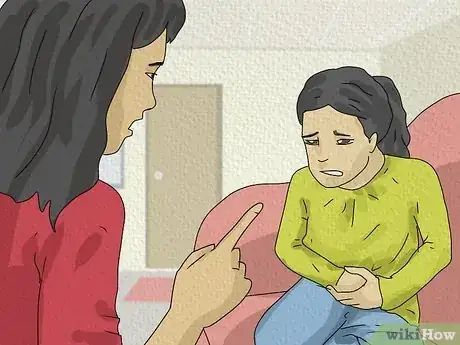



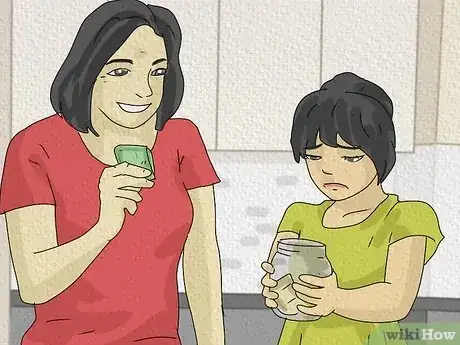
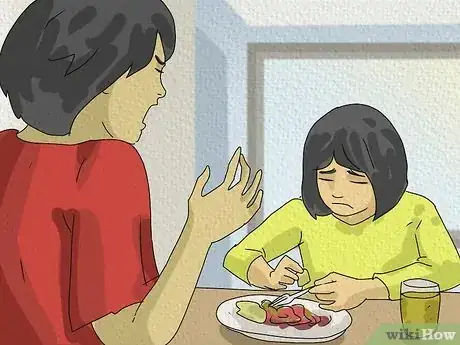














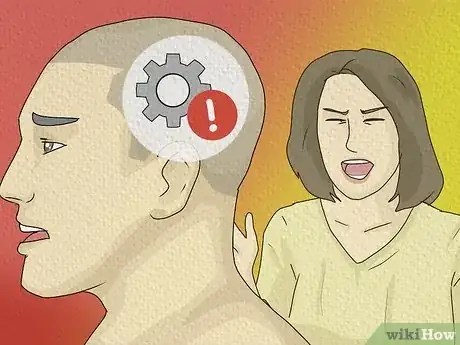




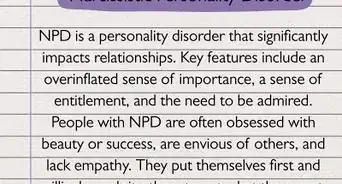























































Medical Disclaimer
The content of this article is not intended to be a substitute for professional medical advice, examination, diagnosis, or treatment. You should always contact your doctor or other qualified healthcare professional before starting, changing, or stopping any kind of health treatment.
Read More...